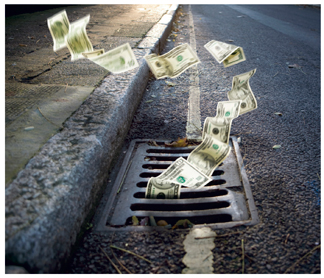 People who like to discover loopholes in new legislation typically wait for the ink to dry on the governor's signature before wrangling through the holes. But there is no such decorum in Florida when it comes to pending no-fault auto insurance reforms.
People who like to discover loopholes in new legislation typically wait for the ink to dry on the governor's signature before wrangling through the holes. But there is no such decorum in Florida when it comes to pending no-fault auto insurance reforms.
Florida Gov. Rick Scott had not even received HB-119 when an “enterprising” medical staffing company already began advertising ways to circumvent the intent of the bill's provisions. Is this the first clue that reform of no-fault—also known as personal injury protection (PIP)—is doomed? Hopefully not. Yet, it is certainly not a clean launch to reforms intended to stem the PIP abuse that is blamed for deteriorating loss trends and rising insurance premiums.
On the last day of the legislative session, Florida lawmakers passed a bill to make changes to PIP to fight the fraud associated with staged accidents and abuses of the $10,000 mandated PIP benefit, a pot of gold being dipped into through illegal or improper medical billing and an ever-rising number of lawsuits.
Recommended For You
Want to continue reading?
Become a Free PropertyCasualty360 Digital Reader
Your access to unlimited PropertyCasualty360 content isn’t changing.
Once you are an ALM digital member, you’ll receive:
- Breaking insurance news and analysis, on-site and via our newsletters and custom alerts
- Weekly Insurance Speak podcast featuring exclusive interviews with industry leaders
- Educational webcasts, white papers, and ebooks from industry thought leaders
- Critical converage of the employee benefits and financial advisory markets on our other ALM sites, BenefitsPRO and ThinkAdvisor
Already have an account? Sign In Now
© 2025 ALM Global, LLC, All Rights Reserved. Request academic re-use from www.copyright.com. All other uses, submit a request to [email protected]. For more information visit Asset & Logo Licensing.





